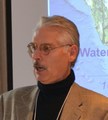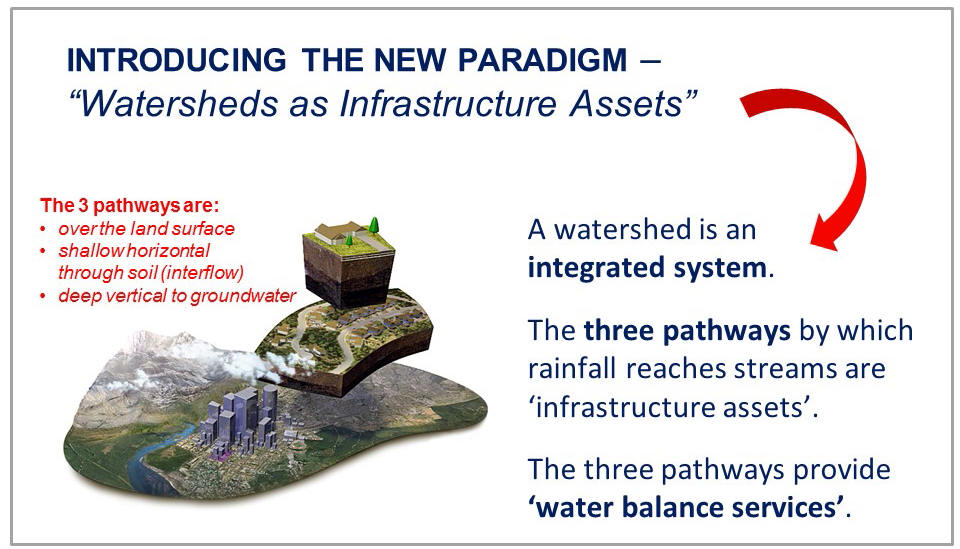What Emanuel Machado, Town of Gibsons Chief Administrative Officer, learned at the “2015 World Forum on Natural Capital”……
Note to Reader:
At the World Forum on Natural Capital held in Scotland last November, Emanuel Machado shared the story of theTown of Gibsons Eco-Asset Strategy with an international audience. He spoke about the efforts of the Town to integrate natural capital considerations into infrastructure management, using principles of asset management, financial planning and ecology. The Town is THE Living Laboratory for the Municipal Natural Capital Initiative, created to support local governments in recognizing, measuring and managing the contribution that natural systems make to municipal service delivery, using asset management business processes.
Quotable Quote – “While we can’t put a price on nature, we can put a cost to ruin it”
 “The 2015 World Forum on Natural Capital brought together government, business, science and academic leaders from 46 countries to discuss the most up-to-date developments on this rapidly evolving field, with a focus on risk management and innovation,” reports Emanuel Machado, Chief Administrative Officer, Town of Gibsons. “After two exciting days, I walked away with a sense that we in Canada, and BC in particular, are heading in the right direction and, perhaps, even leading in some ways. In terms of how best to address natural capital in the context of cities and urban areas, Canada is ahead of the game.”
“The 2015 World Forum on Natural Capital brought together government, business, science and academic leaders from 46 countries to discuss the most up-to-date developments on this rapidly evolving field, with a focus on risk management and innovation,” reports Emanuel Machado, Chief Administrative Officer, Town of Gibsons. “After two exciting days, I walked away with a sense that we in Canada, and BC in particular, are heading in the right direction and, perhaps, even leading in some ways. In terms of how best to address natural capital in the context of cities and urban areas, Canada is ahead of the game.”
Sustainable Watershed Systems, through Asset Management
“Of the many presenters, I was impressed with Dr. Dieter Helm, a Fellow of Economics from Oxford University, who chairs the United Kingdom Natural Capital Committee, created in 2012. The Committee’s work is focused on finding practical approaches to ameliorate the human activity’s impact on the natural world, by making recommendation on how best to improve the state of rivers, forests, minerals and the ocean. Their main advice to government has three key focus areas:
- plan from a watershed perspective (river catchment areas);
- develop natural capital strategies for cities and urban areas; and
- invest in reforestation.”
“In BC, with the introduction of the new Water Sustainability Act, a greater awareness is building about the importance of planning from a watershed perspective and using asset management approaches, an approach that the Partnership for Water Sustainability in BC is championing with its initiative for Sustainable Watershed Systems, through Asset Management.”
Payments for Ecosystem Services
 “In the UK, Payments for Ecosystems Services (PES) programs is a well-established practice. Landholders, mostly farmers, are compensated for allowing improvements to take place on their land that benefit the overall watershed. In Canada, however, the practice is not so common.”“Between now and the next World Forum in a couple of years from now, there is a lot of work to be done to understand the full implications, as well as, the opportunities of our interconnectedness and dependency on the natural world. We don’t have to ‘wait for perfect’, however, to get going. Nicola Sturgeon – First Minister of Scotland – said it best:
“In the UK, Payments for Ecosystems Services (PES) programs is a well-established practice. Landholders, mostly farmers, are compensated for allowing improvements to take place on their land that benefit the overall watershed. In Canada, however, the practice is not so common.”“Between now and the next World Forum in a couple of years from now, there is a lot of work to be done to understand the full implications, as well as, the opportunities of our interconnectedness and dependency on the natural world. We don’t have to ‘wait for perfect’, however, to get going. Nicola Sturgeon – First Minister of Scotland – said it best:
‘While we can’t put a price on nature, we can put a cost to ruin it’
“If we are serious about meaningfully planning and implementing watershed-based solutions, payments for ecosystems services have to be part of the conversation,” concludes Emanuel Machado.
Ecological Accounting – an idea whose time has come
“The Partnership for Water Sustainability is working on a tool that will enable calculation of values embodied in specific civil services that local government draws from natural assets in regional watersheds. The importance of this facility is obvious in view of the  multiple jurisdictions and property ownership that characterizes watersheds,” adds Tim Pringle, Partnership Past-President and Chair, Ecological Accounting Protocol Project.
multiple jurisdictions and property ownership that characterizes watersheds,” adds Tim Pringle, Partnership Past-President and Chair, Ecological Accounting Protocol Project.
“Ecological accounting faces the challenge of monetizing natural assets and services in a way that can be compared to engineered assets and services.”



